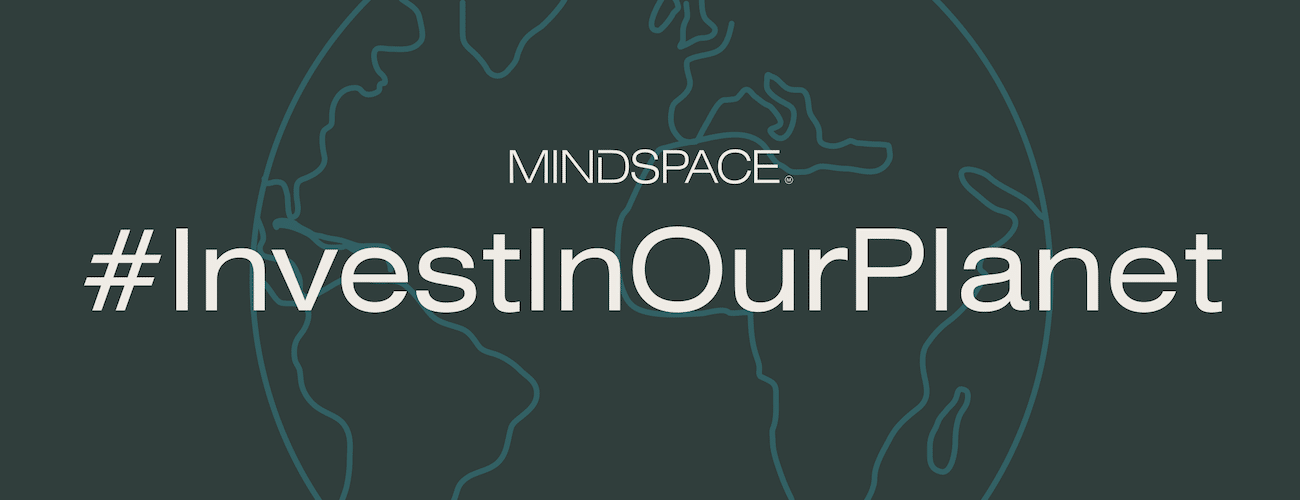
How to Start the Conversation About ESG in Your Company
Every April 22nd, Earth Day is celebrated to raise awareness of environmental issues and to promote nature conservation. This year’s theme is ‘invest in our planet’. This means that it’s time to get involved, and while many decisions are being made by governments, businesses can make a huge impact, too. As EARTHDAY.ORG nicely put it, “smart companies are discovering that it is no longer a choice between going green and growing long-term profits – sustainability is the path to prosperity”. One way companies can take action for our planet is to develop Environmental, Social and Governance (ESG) standards.
But where to begin? How can you start the conversation about ESG in your company? Although no one would deny that contributing to the planet and to society is a good thing, getting from this point of general sympathy to actual mobilization of the company to take action is a huge jump. Did you know you can push your organization to make a positive impact on the world and communities around us?

Four Reasons to Put ESG on the Company’s Agenda
In order to bring ESG to the table you first need to change how it’s perceived – from a nice to have to a pressuring matter.
Do your homework to build the case for ESG in your organization. When researching this topic you’ll quickly learn that all the important external and internal stakeholders of your organization take ESG considerations into account when making business decisions.
Here are four factors that can’t be ignored, and that will put ESG on the company’s agenda (feel free to copy-paste them to your own deck):
#1 Your customers evaluate your ESG commitment as part of their responsible supply chain analysis, and take it into account in their purchase decisions. For instance, they may ask themselves, “do the suppliers I use align with my values?” In PwC’s 2021 Consumer Intelligence Series, one of many studies on this topic, 76% of consumers stated “I will discontinue my relationship with companies that treat the environment, the employees, or the community in which they operate poorly”. Flex office members are no different – Mindspace receives requests about our ESG commitment on a regular basis.
#2 Your potential partners do the same. In the commercial real estate context, landlords are another partner that looks into ESG to make business decisions. As ESG has become a standard in many buildings – especially around energy efficiency and integration into the neighboring community – landlords would like to see operators align with their values.
#3 ESG investing means that your investors and future investors are now integrating ESG-related factors into their portfolio management. According to Bloomberg, by the end of 2020, the amount of assets under management providing some kind of ESG monitoring totaled more than $35 trillion – or over a quarter of total global assets – and will grow to $50 trillion by 2025. It’s not just the good will of the investor community; research by data provider Morningstar showed that long-term performance of sustainable funds is stronger than non-ESG funds. And soon enough this will not be a choice, but mandated by regulators, as both the EU and the US are working on disclosure rules.
#4 Your employees, too, care about their workplace, and the values that your organization stands for. An ESG commitment is driving employee engagement and performance – employers with higher ESG scores were found to better attract and retain talents. Essentially, employees want to feel that they are part of an organization that cares.
Team Up: Engage the Employees
Now that it’s clear that employees value ESG performance, you’d be surprised how many of your colleagues are willing to participate and contribute to the ESG efforts in your company. I personally was surprised and thrilled when I sent an outreach email calling for our Mindspace employees to get involved. We ended up with an ESG forum of approximately 20% of the company’s employees!
This on its own drives the ESG efforts in the organization – both to show the importance and to de-facto drive the effort. One person can’t do it all alone, as you’ll need working hands to promote ESG initiatives.

Define Where to Focus Your ESG Efforts
The next step is to decide about the scope of your company’s ESG efforts. List your initiatives and the topics that need to be tackled. Some are universal and must-haves for all companies – e.g. carbon emission reduction, and Diversity, Equity and Inclusion (DE&I). Others are more industry or geo-specific. Regarding some goals your company is already at is a good starting point, while as far as others go you might see a huge gap.
When researching your stakeholders, you could probably already point out what ESG topics they care about. And if it isn’t clear – you can simply ask them as part of your customer and employer satisfaction survey, or in one-on-one conversations. And, of course, looking at other players in your industry and their ‘ESG’, ‘impact’ or ‘sustainability’ web pages will complete the picture.
Form an ESG Work Plan
In order to form your company’s ESG work plan, follow the following steps:
#1 Prioritize the initiatives. Prioritize the topics based on the good old value-complexity matrix, and there you have it – your roadmap. The trick in ESG, though, is to quantify and measure value; but at this initial stage you can start with a qualitative view.
#2 Assign initiative owners. For each topic in the first batch of top initiatives, nominate an initiative owner that also has a connection to the actual topic in your company (e.g. DE&I – an HR professional, emissions – an operations manager).
#3 Start rolling. The rest is managed like any other project – the initiative owners build a work plan, including a timeline and KPIs. The process is monitored with monthly ESG forums, and the achievements are reported to management.
And just like that, without noticing, you made the ball rolling for an ESG change at your company. With the support of all the many ESG enthusiasts in your organization – you can make an impact.




